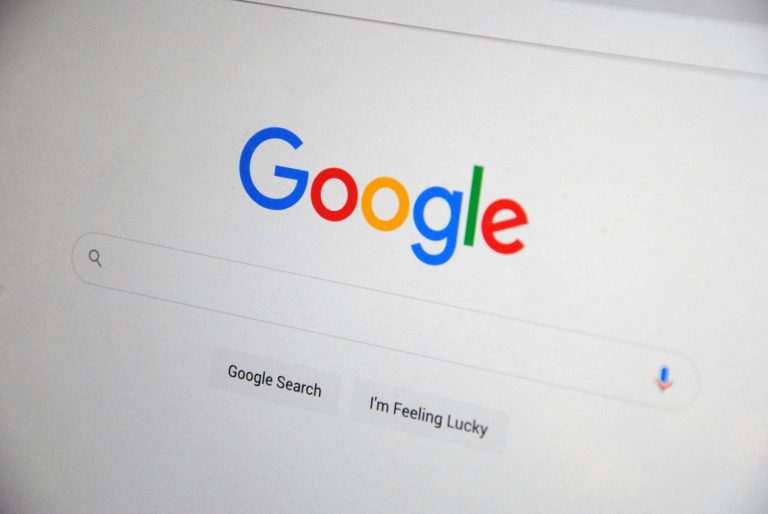
How to check for AI-generated content
Concerned that you’ve solicited human-written content but received an alternative by artificial intelligence (AI) instead? While Google doesn’t expressly penalise AI-generated content, it does value
Digital marketing is evolving all the time. Paradigms shift overnight, algorithms update and take the market with them, new tools change the game for everybody, and audiences adjust their values and attitudes en masse.
Half the work of marketing is trying to anticipate these changes and get ahead of the curve. By looking at current and recent digital marketing trends, the next moves in marketing can be predicted.
So what have recent trends looked like, and what might be next?
Some might argue that Google updating the way its searches function isn’t so much a ‘trend’ as a constant.
However, these updates affect user results—and therefore, the content providers looking to hook said users—and can introduce and influence trends on their own.
One longstanding pattern with a recent update is Google’s push to make content more rewarding and relevant to search users. Its recent ‘helpful content’ update takes particular care to focus on “people-first content”, shunning content that only aims to satisfy SEO.
Of course, the best SEO marketing already should be people-focused, but Google’s update is a strong statement that this is not only preferable, but now pretty much essential.
Among Google’s advice to go alongside this update is that creators don’t use “extensive automation to produce content on many topics”, don’t “leave readers feeling like they need to search again”, and don’t produce “lots of content on different topics in hopes that some of it might perform well in search results”.
As well as signalling a focus on richer organic search, this update implies a greater emphasis on Google’s EAT (Expertise-Authoritativeness-Trustworthiness) factor in measuring website quality.
The ways in which search results are delivered are constantly being tweaked and redesigned. Performing a search now doesn’t only deliver the results directly relating to the query, but also shows questions that other people are asking, related searches, and relevant videos in addition to ads.
Google’s SERPs now also deliver featured snippets, wherein a relevant paragraph from the top result is embedded at the top of the search results. With design features like this coupled with Google’s recent change of approach to generating link titles, marketers need to stay abreast of the trend of redesigning how SERPs are delivered and how they can exploit these changes, or else avoid the problems they might present.
Voice searches have had a slow rise in popularity. Advances in voice recognition technology and the increase in smart speakers—such as Amazon’s Echo, Google’s Nest, and Apple’s HomePod—mean that voice search cannot be confidently discounted for much longer.
Voice searches have the potential to shape the way that queries are formed and therefore the questions that marketers need to answer. Instead of simply searching ‘SEO Liverpool’, a voice search would be phrased more like a question: ‘How do I get help with SEO in Liverpool?’, or ‘How do I improve Liverpool SEO?’
With Google reporting for 2022 that over a quarter of the global online population utilises voice search, the semantics of voiced queries has already had an impact of search phraseology. Conversational, clear language is needed and questions need to be answered with the kind of clarity that a voice searcher (who ultimately wants a quick answer) is looking for.
AI marketing tools have taken digital marketing to a new level since their inception. They can handle simple but time-consuming tasks that free up the calendars of human marketers, or provide the heavy duty number crunching that yields deep insight into audiences and their behaviours.
AI tools have become more accessible both in terms of cost and complexity in recent years, with turnkey solutions able to be dropped in to a marketer’s bag of tricks with ease. But AI isn’t just changing things at the forefront. In many regards, it’s running the show in the background.
Programmatic advertising can be bought via real-time bidding, which is aided by the speed and capability of an AI. Furthermore, programmatic media itself is aided by AI and machine learning. While this can be seen to reduce the direct control of marketers using it, it also increases the efficacy of adverts by intelligently placing them in locations where they’re most evidentially effective, with the capacity to change quickly with shifting data.
Offerings like Google’s Smart campaigns now mean that an entire campaign from start to finish is underpinned by AI, machine learning, and data.
A huge part of digital marketing is SEO. In fact, almost half of businesses who work on their organic search yields say that it gives them the best ROI of all marketing activities.
With that in mind—and given our expertise and focus on SEO here at Aqueous—what’s next for organic search and the fight for SERP dominance?
Machine learning is a huge factor in search, and you don’t need to just take our word for it. In 2019, Microsoft invested in eleven AI startup companies. One of them, OpenAI, received $1 billion in funding alone.
Machine learning can help search engines like Google hone its understanding of individual user interests, perform better with brand-new queries, and process natural language (another strength when paired with voice search, as mentioned earlier), to name just a few capabilities.
Machine learning allows Google—the search engine itself—to improve independently and perhaps even better than Google—the company—could direct. When applied to digital marketing, the implications of smarter searching widen the competition in SEO for the better.
And speaking of SEO, there is the question of whether individual websites will continue to be necessarily on an internet where search is the de facto gateway to finding information. If Google can retrieve all the data you need, will we invariably reach a point at which Google is all we need?
Our agency is built on a foundation of real, experiential knowledge. We know the current digital marketing trends and how to make the most of them. Every move we make for your business has solid logic, sound marketing theory, and expert care behind it. It’s why so many of our customers see exponential returns on their organic search traffic and their marketing ROI.
Want to find out more? Just get in touch.
Digital marketing channels: Which one should you choose?
Content Optimisation: How to improve existing content on your website
How AI is becoming more prominent in digital marketing
How to create a results-driven digital marketing campaign
SEO for YouTube: How to optimise YouTube videos for search
How to boost your website’s domain authority
What is Evergreen Content and why does it matters for SEO?
Why we build backlinks to your website
How to develop a content strategy for SEO
Content is King. What is content marketing?
Creating great content: How to write for SEO
How digital marketing has changed over the years
How video content can elevate your website
Top 20 Facts about Manchester You Never Knew
Aqueous Digital’s Ultimate Guide to the cost of SEO in the UK
Aqueous Digital’s Guide to the Top 501 SEO and Digital Marketing Terms
How video content can elevate your business

Concerned that you’ve solicited human-written content but received an alternative by artificial intelligence (AI) instead? While Google doesn’t expressly penalise AI-generated content, it does value

At Aqueous Digital, we’ve long maintained the belief that the concept of reviewing companies is flawed, having a significant effect on the success of businesses

Searching for different ways to connect with your target audience? With curated content, you can engage key demographics that are vital for the success of

Taking no less than two weeks to complete, Google’s first core update of the year has now finished rolling out, as reported by Search Engine

It’s no secret that ever since the early 2000’s, Google has been the go-to search engine for online users across the world, but with AI

Struggling to determine how much money your construction business should be dedicating to your marketing efforts? As award-winning digital marketing experts, the Aqueous Digital team